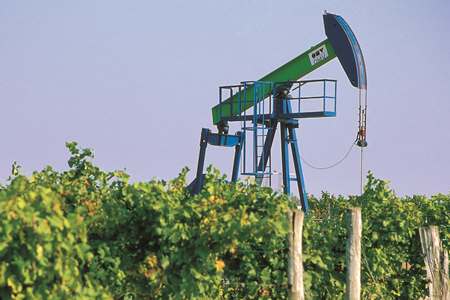OMV, the leading energy group in the European growth belt, is modernising the infrastructure in the Matzen Field, Lower Austria, in which oil and natural gas have been produced for more than 50 years.
This extensive modernisation project includes the new construction of a central extraction station as well as the renewal and optimisation of the pipeline network.The quantity of formation water that is pumped with the crude oil is increasing with the age of the oil field. The water concentration in the live oil in the Matzen field is more than 70%. The formation water is separated from the oil and injected back into the deposit in order to maintain the pressure there and systematically wash out additional oil from the porous rock. Due to the composition of the water that is to be injected (including solids and micro-organisms), clogging may occur in the area of the injection tubes after a certain amount of time. Therefore, in order to keep any impairments and hence any necessary tube treatments, fine screening of the formation water is required before injection.
VTU Engineering was commissioned to work together with the plant operator and the laboratory facilities of OMV to develop a concept for a new cleaning process. The objectives were cleaning 1200 m3/h of continuously incoming formation water with a fluctuating composition with the highest availability of the plant, compact construction, and the most effective and efficient technology possible. In parallel to the theoretical investigations, a variable pilot plant was planned, constructed and operated in which different processing steps and combinations were tested for oil/water/solids separation, typically in cooperation with manufacturers (e.g. centrifuges, hydraulic cyclones, coalescers). The formation water treatment plant (main processing plant) was designed to be sealed and overlaid with nitrogen in order to prevent contact with oxygen in the air on the one hand, and hence the growth of micro-organisms, and to protect the environment from hydrocarbon emissions on the other hand. After completion of the concept, VTU was commissioned with the basic engineering of the plant including all ancillary systems such as the dosing system, slop system, sludge and nitrogen preparation. They are currently in the completion stage.
The challenge of the project was the development of a new process combination in which many details had to be taken into consideration starting in the concept stage in order to ensure the high availability. Many important details from OMV from decades of experience with the existing plant as well as with special component and chemical suppliers were combined with VTU's know-how from other industry sectors, e.g. water treatment or biodiesel production and worked into a process that was optimised for this application case.

